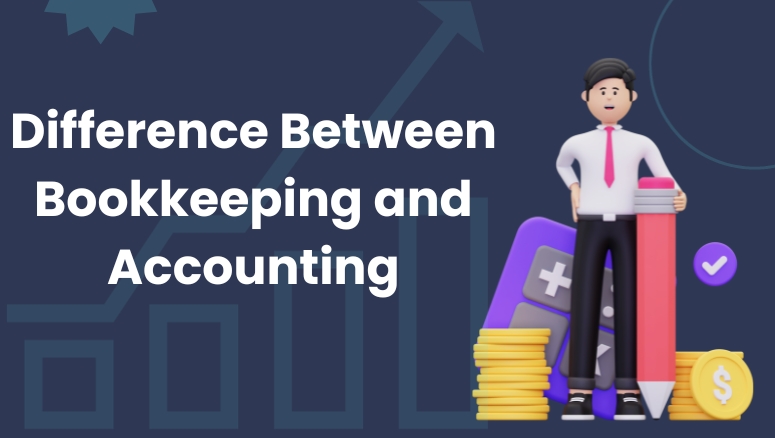We do not take chances when it comes to accounts. However, we were unable to learn the difference between bookkeeping and accounting. In the world of finance and business management, the terms “bookkeeping” and “accounting” are often used interchangeably, leading to confusion among those who are not well-versed in the field. However, it’s essential to understand that bookkeeping and accounting are two distinct but closely related processes that play crucial roles in managing a company’s financial affairs. In this article, we will delve into the key differences between bookkeeping and accounting and highlight their unique contributions to the financial health of an organisation.
Bookkeeping: The Foundation of Financial Record-Keeping
Bookkeeping is the first and most basic step in the financial management process. It entails the systematic recording of all financial transactions in a company. Sales, purchases, expenses, and payments are all examples of transactions. The main goal of bookkeeping is to keep accurate and detailed records of these transactions.
Key aspects of bookkeeping:
- Data Entry: Bookkeepers record financial transactions in journals and ledgers, ensuring that each entry is accurate and complete.
- Classification: They categorise transactions into various accounts, such as revenue, expenses, assets, and liabilities, to organise financial data effectively.
- Reconciliation: Bookkeepers reconcile bank statements with company records to identify discrepancies and ensure the accuracy of the company’s financial statements.
- Financial Reporting: Bookkeepers do not prepare financial statements, but they do provide the necessary data and reports to accountants, who use this information for analysis and decision-making.
- Frequency: Bookkeeping is typically an ongoing process that takes place daily or weekly to keep financial records up-to-date.
Accounting: The Interpretation and Analysis of Financial Data
Accounting, on the other hand, builds on the groundwork established by bookkeeping. It entails interpreting, analysing, and reporting financial data to provide insights into a company’s financial health and performance. Accountants use bookkeeper data to create financial statements, analyse financial trends, and make informed recommendations.
Key Aspects of Accounting:
- Financial Statements: Accountants create financial statements, such as the income statement, balance sheet, and cash flow statement, that summarise a company’s financial position and performance over a given period.
- Financial Analysis: Accountants examine financial information to determine profitability, liquidity, solvency, and efficiency. They provide valuable insights to help management make sound decisions.
- Budgeting and Forecasting: Accountants develop budgets and forecasts based on historical financial data, assisting businesses in planning for the future and setting financial objectives.
- Compliance: Accountants make certain that financial records follow accounting standards and regulations such as Generally Accepted Accounting Principles (GAAP) or International Financial Reporting Standards (IFRS).
- Taxation: Accountants deal with tax issues such as preparing tax returns, calculating tax liabilities, and advising on tax-saving strategies.
Finally, businesses should recognise the importance of bookkeeping and accounting and ensure that they have qualified professionals in each role to ensure the company’s financial stability and growth. Organisations can effectively navigate the complex world of finance if they understand the differences between these functions.
